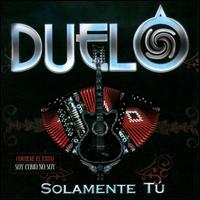
Tejano music, also known as Tex-Mex music, is a popular music style fusing Mexican and US influences. Typically, Tejano combines Mexican Spanish vocal styles with dance rhythms from Czech and German genres – particularly polka or waltz. Tejano music is traditionally played by small groups featuring accordion and guitar or bajo sexto. Its evolution began in northern Mexico.
The term conjunto refers to several types of small musical ensembles present in different Latin American musical traditions, mainly in Mexico and Cuba. While Mexican conjuntos play styles such as norteño and tejano, Cuban conjuntos specialize in the son, as well as its derivations such as salsa.

Norteños are the various, affiliated gangs that pay tribute to Nuestra Familia while in California state and federal correctional facilities. Norteños may refer to Northern California as Norte Califas. Their biggest rivals are the Sureños from Southern California. As of 2008, the statewide north–south dividing line between Norteños and Sureños was regarded as running through the southern end of the Central Valley. The gang's membership consists primarily of Mexican Americans.

The music of Mexico is highly diverse, featuring a wide range of musical genres and performance styles. It has been influenced by a variety of cultures, primarily deriving from Europeans, Indigenous, and Africans. Music became an expression of Mexican nationalism starting in the nineteenth century.
The music of Arizona began with Indigenous music of North America made by Indigenous peoples of Arizona. In the 20th century, Mexican immigrants popularized Banda, corridos, mariachi and conjunto. Other major influences come from styles popular throughout the rest of the United States.
Nortec is a genre of electronic dance music developed in Tijuana that first gained popularity in 2001. Nortec music is characterized by hard dance beats and samples from traditional forms of Mexican music such as Banda sinaloense and Norteño - unmistakably Mexican horns are often used.

Norteño or Norteña, also música norteña, is a subgenre of regional Mexican music. The music is most often based on duple and triple metre and its lyrics often deal with socially relevant topics, although there are also many norteño love songs. The accordion and the bajo sexto are traditional norteño's most characteristic instruments. Norteña music developed in the late 19th century, as a mixture between local Mexican music and Austrian-Czech-origin folk music.

El Gran Silencio is a rock en español band from Monterrey, Mexico that blends a variety of rock, reggae, dancehall, and hip-hop influences with traditional Latin American musical forms such as cumbia, vallenato and Norteño. Their lyrics tend to be bohemian and often talk about life in the “barrio” or poor neighborhoods of Mexican cities, especially Monterrey. As of 2015, they have recorded seven albums, eleven singles, six soundtracks, five tributes and seventeen collaborations and have toured Mexico and the United States.
Los Rieleros del Norte are a Mexican three-time Grammy-nominated regional Mexican band from Ojinaga, Chihuahua, Mexico. They are based in El Paso, Texas, United States, and specialize in the norteño-sax genre.

Los Tigres del Norte are a norteño band from San Jose, California. Originally founded in the small town Rosa Morada in the municipality of Mocorito, Sinaloa, Mexico, with sales of 32 million albums, the band is one of the most recognized acts in regional Mexican music, due to their long history and their successes within the Mexican community in the diaspora. The band is famous for its political corridos, some of which have been censored, even in its own country. The band is the only Mexican group to win 7 Grammy awards and 12 Latin Grammys. In addition, the band has made 40 films alongside the Almada brothers among other well-known Mexican actors.
Polo Urías is a regional Mexican singer from Ojinaga, Chihuahua, Mexico. He specializes in the norteño-sax genre. He came to prominence when he performed with his brothers’ band, Los Jilgueros del Arroyo. He then left the group to become the primary vocalist of Los Rieleros del Norte. He left that group in 1993 to form his own band, Polo Urías y su Maquina Norteña. Some of his most popular hits are Veinte Años, Una Aventura, and Mi Primer Amor.

Intocable is an American band from Zapata, Texas that plays regional Mexican music; specializing in norteño and tejano music. It was started by friends Ricardo Javier Muñoz and René Orlando Martínez in the early 1990s. In a few years, Intocable fused the genres Tejano and Norteño with a musical signature that fused Tejano's robust conjunto and Norteño folk rhythms with a pop balladry. Intocable is perhaps the most influential group in Tejano and their tough Tejano/Norteño fusion has become the blueprint for several Tejano bands. The group's style combines romantic, hooky melodies, tight instrumentation and vocal harmony.

Regional styles of Mexican music vary greatly from state to state. Norteño, banda, duranguense, Son mexicano and other Mexican country music genres are often known as regional Mexican music because each state produces different musical sounds and lyrics.
Luis Hernández may refer to:

Sureños , also known as Southern United Raza, Sur 13 or Sureños X3, are groups of loosely affiliated gangs that pay tribute to the Mexican Mafia while in U.S. state and federal correctional facilities. Many Sureño gangs have rivalries with one another, and the only time this rivalry is set aside is when they enter the prison system. Thus, fighting is common among different Sureño gangs even though they share the same common identity. Sureños have emerged as a national gang in the United States.
Los Tucanes De Tijuana are a Mexican norteño band led by Mario Quintero Lara. The band was founded in Tijuana, Baja California in 1987. They, along with Los Tigres del Norte, were pioneers in playing their music in a rougher manner as opposed to the traditional norteño music of northeastern Mexico, subsequently influencing many other norteño artists from Mexico’s pacific states and giving that region of the country its signature norteño sound. During their career, Los Tucanes de Tijuana have garnered several awards and recognitions, including a Latin Grammy in 2012 for the album 365 días, five Grammy Award nominations, nine Lo Nuestro Awards nominations and multiple BMI Awards for Quintero as a composer. They are the first norteño music band to obtain an international film award by winning the Un Certain Regard Angel Film award at the Monaco International Film Festival for their participation in the documentary Los ilegales. In 2008, the group received a star on the Las Vegas Walk of Fame.

MTV Unplugged: Los Tigres del Norte and Friends is a live album by Regional Mexican band Los Tigres del Norte. It was recorded before a live audience at the Hollywood Palladium in Los Angeles, California, on February 8, 2011 and released by Fonovisa Records on May 24, 2011. The album includes featured performances by Andrés Calamaro, Calle 13, Zack de la Rocha, Juanes, Paulina Rubio and Diego Torres.

Solamente tú is the eighth studio album by Regional Mexican band Duelo. It was released on April 16, 2010 by Fonovisa Records. The songs are mostly inspired by disappointment in love. Musically, the album drew inspiration from country rock and Americana while incorporating the band’s signature norteño style.

Calibre 50 is a regional Mexican band. Formed in Mazatlán, Sinaloa, in 2010 by Edén Muñoz, the band has had several lineup changes, with the current roster consisting of lead vocalist Tony Elizondo, diatonic accordionist José Mario "Marito" Gastélum, twelve-string guitarist Oscar Arrendondo, sousaphonist Alejandro Gaxiola, and drummer Erick García.











